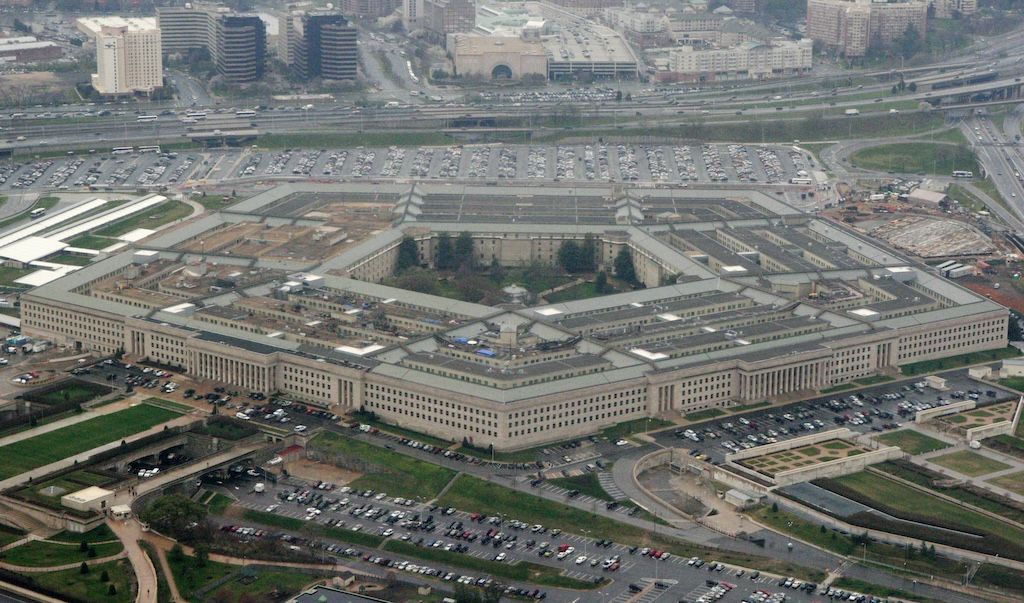

It is unclear how much money the Department of Defense provided to Chinese research laboratories or related to enhancement of pathogens of pandemic potential, according to a new report from the Pentagon’s inspector general.
The Office of Inspector General was tasked in the fiscal 2024 National Defense Authorization Act to submit a report to congressional defense committees on the amount of federal funds awarded by the department, directly or indirectly, to Chinese research labs that could have resulted in the enhancement of pathogens of pandemic potential.
The Office of Inspector General was unable to determine the extent to which Department of Defense grants, contracts, subgrants, subcontracts, or any other type of agreement or collaboration due to “limitations in the DoD’s systems used to track contracts and grants,” per the report that was released early last week.
“Consistent with prior findings by the Government Accountability Office in this area, we identified significant limitations in the adequacy of the data in DoD and federal awards systems,” Inspector General Robert Storch said. “While the DoD was able to identify some funding that fell within the scope of the congressional inquiry, we found that the DoD did not track funding in sufficient detail for us to determine the full scope of funds it provided to Chinese research laboratories or other foreign countries for research related to pathogens or otherwise.”
The provision in the fiscal 2024 NDAA that required the department to produce the report was the effort of both Sen. Joni Ernst (R-IA) and Rep. Mike Gallagher (R-WI) in the wake of the federal government funding possibly dangerous research at the Wuhan Institute of Virology.
The WIV is at the heart of the debate over the origins of COVID-19, with proponents of the so-called lab leak theory suggesting the virus could have originated from an accident at the WIV.
“Taxpayers deserve to know how much of their money is being shipped to China and why Washington continues collecting and creating deadly super viruses — both of which could pose threats to our national security,” Ernst said in January prior to the department beginning its investigation. “This investigation is the first step to bringing long-overdue transparency and accountability to the indefensible ways Washington is spending our defense dollars.”
The Army identified seven grants from the Congressionally Directed Medical Research Programs appropriations valued at $15.6 million that fell into this category and another five awards valued at $9.9 million to Chinese entities unrelated to enhancing pathogens.
Army officials said all of the pathogen research is for defensive purposes so they can understand the threats that the U.S. could face. The OIG did not find information to contradict that.
The Defense Threat Reduction Agency also identified 13 projects that total $46.7 million that were awarded to EcoHealth Alliance from 2014 through 2023 for pathogen-related biosurveillance studies. The agency reported none of that funding was allocated to China or its affiliates.
EcoHealth, a preeminent virus research nonprofit organization, has come under significant scrutiny since the outset of the coronavirus pandemic due to its research on bat coronaviruses conducted at the WIV, funded by the National Institutes of Health starting in 2014.
“The CCP’s lack of transparency is one thing, but the DoD’s failure to cooperate and provide details about the United States’s role in deadly gain-of-function research is unacceptable,” Sen. Roger Marshall (R-KS) told the Washington Examiner. “This is just one of many reasons the public doesn’t trust the federal government to uncover the origins of COVID-19. Every obstacle we face only means we are getting closer to exposing the truth. We will keep fighting for transparency and accountability for this virus that killed over a million Americans.”
Marshall sent a letter to Storch last month expressing his support for the investigation and urging him to broaden the scope of it.
Leading public health officials and virologists contend that the viruses studied by EcoHealth and WIV scientists under the NIH grant could not have given rise to SARS-CoV-2 because they are too genetically distant. However, public health officials including Dr. Anthony Fauci and former NIH Director Lawrence Tabak have noted it is impossible to know what projects Chinese researchers were conducting at the WIV that did not involve NIH funds.
In 2018, EcoHealth applied for a grant with the Defense Advanced Research Projects Agency through the DoD to conduct research at the University of North Carolina, Chapel Hill, and the WIV. Although the project was denied, it would have entailed adding a furin cleavage site to a coronavirus, which is the same characteristic makes SARS-CoV-2 bind to human lung tissue.
When testifying before the Select Subcommittee on the Coronavirus Pandemic in May, EcoHealth President Peter Daszak admitted that although the project was not funded by DARPA, there would be no way of confirming whether or not his proposed research partner at the WIV undertook the project independently without U.S. backing.
EcoHealth collected over 15,000 bat coronavirus samples that had been entirely untouched and left at the WIV once the NIH shut down the grant.
Last month, the Department of Health and Human Services began debarment proceedings against both EcoHealth and Daszak personally for turning in their required annual report for the WIV research two years late. Debarment would prohibit EcoHealth and Daszak from receiving any federal funds for a minimum of three years.
EcoHealth did not respond to the Washington Examiner’s request for comment.
CLICK HERE TO READ MORE FROM THE WASHINGTON EXAMINER
The Department of Defense did not respond to a request for comment.
The GAO experienced similar difficulties when conducting its own investigation in 2020.




